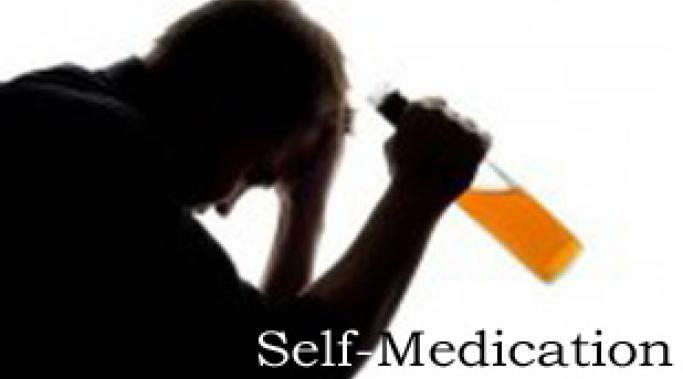Blogs
Even a bad decision has its usefulness! More Than Borderline's Becky Oberg talks about how bad decisions give us the experience to make good decisions.
This topic is close to my heart...or, rather, high on my level of irritation. Diagnosed with bipolar disorder at the age of twelve, I have seen my share of psychiatrists, psychologists, social workers---I am missing a few people, er, professionals. The list is extensive. Some of us are blessed to be working with a wonderful mental health team right of the bat.
Diagnosed with a mental illness? This is your new psychiatrist, he or she will make you well, provided you put the work in! My experience has been quite the opposite--a bit more complicated.
Contradictions in Diagnosis
The holidays can bring a lot of stress to people, and there may be an increase in triggers for those in recovery. There are a lot of articles and stories about how to stay present, and mindful of recovery throughout the season. I think it is important to continue to remind people to embrace a perspective of gratitude for all the joys we have in our lives. It isn't only a necessary recovery tool, but important for all areas of our life when we feel overwhelmed or stressed.
Let’s admit it: family dynamics can be huge triggers for those of us with mental illness. Social support can be great, and we all need to know that we have people in our corner when things get bad. However, families are often the breeding ground for the very emotions that make our illnesses harder to manage. So, how do you prevent Aunt Margaret and Uncle Joe from sending you from the living room couch to the therapists’ couch?
It has been said that - an expectation is a preplanned resentment – and since the holiday season is built upon wave after wave of rosy, grandiose expectations it is reasonable to imagine that an avalanche of resentments ready to sleigh you cannot be far behind. This is particularly true for those of us who every day unwrap that most bizarre of all gifts, commonly referred to as mental illness.
As ever, your friends at Funny In The Head are here to help.
Yesterday, I met with the "team" to discuss an IEP for Bob (my 4th-grade son, diagnosed with bipolar disorder and ADHD).
Apparently, the team has met before--without yours, truly--as I discovered a couple of weeks ago when I emailed the principal asking whether we were going to meet before or after Bob's teacher returns from maternity leave. The return email I received from the school psychologist indicated no meeting had ever been held, but Bob's ineligibility for services via IEP had already been determined and we could meet to discuss a 504 plan.
All too often women are presented with the black/white thought that they can be either 'good', or get what they want. Not true!
First, what do we mean by 'good'? Every girl grows up learning what this means in her family, school, and eventually professional life. Whatever your definition, whatever 'the rules' are for you, they're probably more flexible than you imagine. Even if you experience anxiety (really).
Second, strength isn't being tough on yourself
How she got a job on our unit, I'll never know.
When I was a patient on the borderline personality disorder (BPD) unit at Larue D. Carter Memorial Hospital in Indianapolis, we had a patient-led group. Staff stayed out of this group; it was strictly for us.
L (name withheld) didn't care. She came into the group, and when we protested, accused us of "plotting against staff" and said we needed to "respect my authority."
This was not going to end happily.
Last week we talked about five of the top things that we learned about mental illness last year:
Statistics on Prevalence of Bipolar Disorder
How often is Bipolar Diagnosis Mistaken for Depression?
Predictor of Bipolar Treatment Success
Antimanic Treatment Efficacy - Drugs Compared
Are Two Antidepressants Better Than One?
Today we will discuss 6-10 in part two of this article.
Let me stress this: Do Not Self-Medicate Mental Illness. This is obvious, right? It should be simple. Why make things more complicated? Being diagnosed with mental illness is crazy enough, so why do a large portion of people, statistically, abuse drugs and alcohol?
I'm human and sometimes I hurt. Just like you do. A few years ago:
I have not slept in three days, maybe four. Sheets hang on my windows. The light stings my dilated eyes. I wince, even among the relative darkness I have created. I have not eaten in days; I drink water tainted with vitamins hoping that's enough.It's been days of drugs and of alcohol. I am surprised I have not died yet.
For many years, that was my life. That was my way of dealing with the diagnosis. I hid behind drugs and alcohol because, in my mind, I would rather be an addict and alcoholic than to be bipolar.







